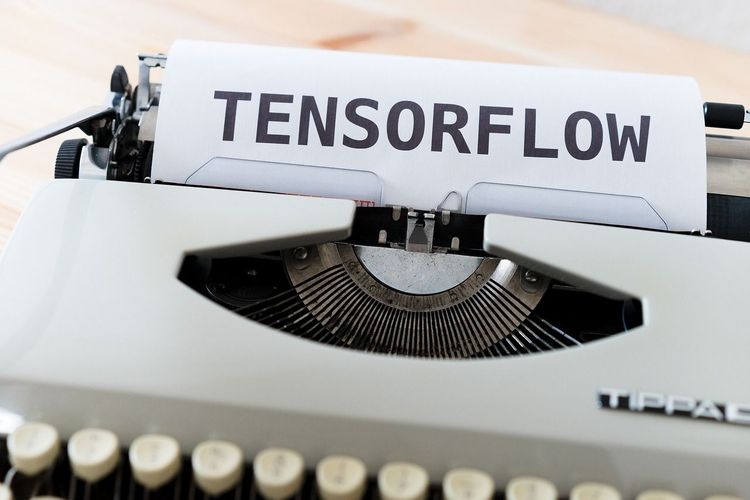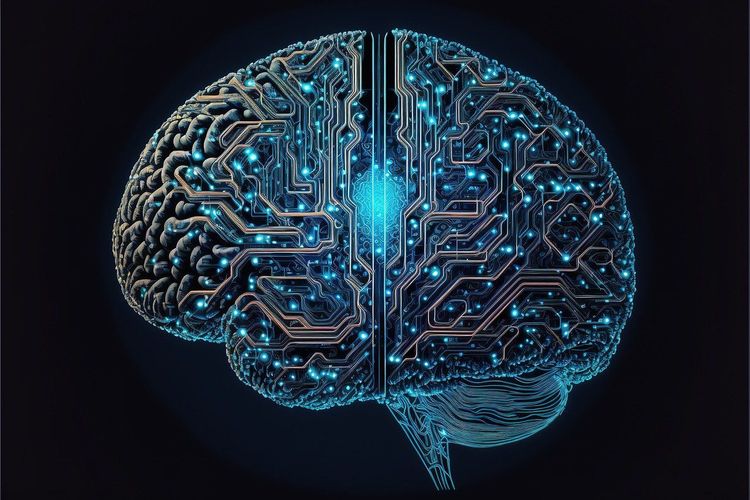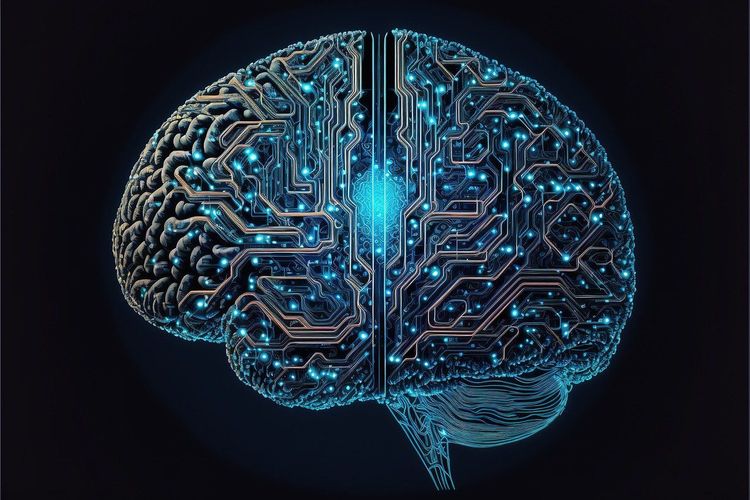In January of last year, German biotech firm BioNTech made headlines with its acquisition of African AI startup InstaDeep for over $550 million, a deal that was finalized in July. This acquisition marks the largest exit for an African startup to date, and InstaDeep has been operating successfully under the BioNTech umbrella for over a year. Now is the opportune moment to evaluate InstaDeep’s progress following this significant acquisition.
InstaDeep specializes in leveraging advanced machine learning techniques to integrate AI into enterprise applications, offering products ranging from GPU-accelerated insights to self-learning decision-making systems. Prior to the acquisition, the Tunisian-born, Paris and London-based startup successfully secured over $108 million in funding from a variety of prominent global investors, including Google, Deutsche Bahn, and BioNTech, the latter two also being major partners and clients.
One notable collaboration involves their early partnership with BioNTech during the pandemic, where InstaDeep contributed to developing a system for early detection of high-risk COVID-19 variants. Moreover, InstaDeep's work with Google DeepMind focused on creating a monitoring system for desert locust outbreaks in Africa. They also partnered on a groundbreaking project with Deutsche Bahn to automate railway scheduling, enhancing operational efficiency for Europe’s largest rail operator.
These collaborations highlight the versatile applications of InstaDeep’s solutions. However, BioNTech had a specific vision for harnessing AI to advance therapeutics and vaccines targeting various cancers and infectious diseases—a goal it has intensified since acquiring InstaDeep.
Fifteen months post-acquisition, co-founder and CEO Karim Beguir shared that InstaDeep has made considerable strides towards these objectives while still independently delivering solutions to clients beyond the biotech sector. "We’re strategically aligned with BioNTech's goals in biology and bio AI capabilities," Beguir explained. "Yet, we maintain the flexibility to be a strong player in AI across Africa while fostering innovations in areas like industrial optimization."
Enhancing Biotech Capabilities
Beguir emphasized that InstaDeep's mission over the past year has been to embed AI at every stage of BioNTech’s development pipeline to refine existing processes. For instance, in histology—analyzing and labeling tissue samples to differentiate between tumor cells and healthy ones—BioNTech experts traditionally handled this manually. InstaDeep's technology now accelerates this process by utilizing visual AI and segmentation systems, boosting labeling efficiency by five times.
A significant achievement includes the successful completion of the RiboMab project, which involves mRNA-encoded antibodies now part of BioNTech’s toolkit for cancer immunotherapy. This initiative was introduced through InstaDeep's DeepChain platform, designed for protein engineering and biological data analysis, during their first collaboration in 2020.
Handling sensitive healthcare data is another critical component. The importance of secure data management is underscored by past breaches, such as the incident involving 23andMe, where data of nearly 7 million individuals was exposed. BioNTech faced similar risks in 2020, when hackers accessed documents related to its COVID-19 vaccine. Though both BioNTech and Pfizer affirmed the integrity of their systems, the incident served as a stark reminder of cybersecurity vulnerabilities in the sector.
Both Beguir and his team are highly vigilant regarding healthcare data, especially since their collaboration involves using AI to enhance data assets, enabling precise identification of protein sequences and potential new targets for cancer therapies. Notably, BioNTech handles real patient data, whereas InstaDeep focuses on developing models trained on publicly accessible data. This distinction has allowed InstaDeep to create the Nucleotide Transformer, now recognized as the most downloaded and popular AI genomics model globally.
"InstaDeep developed and refined the nucleotide model using public data," Beguir clarified. "However, when implementing the model for specific use cases with real patient data, we operate at the BioNTech level, ensuring compliance with privacy regulations that safeguard patient information."
Pioneering Technologies in and Beyond Biotech
Regarding future projects, Beguir revealed InstaDeep's latest achievement: Bayesian flow networks (BFN), a new generative AI protein model that surpasses previous autoregressive and diffusion models. BioNTech CEO Ugur Sahin hailed it as "state-of-the-art technology."
Beguir stated that this model generates extraordinarily well-structured proteins by allowing systems to identify specific characteristics along an antibody's heavy chain, such as chemical properties, hydrophobicity, and sequence length. Such advancements are pivotal for deciphering complex protein functions and engineering innovative therapeutic proteins.
"We’re thrilled by the potential for AI innovations like ours to identify practical applications, collaborate intimately with BioNTech, and create solutions that can be trialed in labs and clinics, ultimately benefiting patients," remarked Beguir. "The current landscape of biology and AI resembles the early days of natural language processing in 2020 with GPT-3, where systems were emerging and capabilities were notable, but significant improvements were still feasible."
InstaDeep launched the new AI model alongside the unveiling of a near-exascale supercomputer, which reportedly places the collaboration in the top 100 globally for compute and infrastructure and within the top 20 for H100 GPU clusters.
These advancements underscore how InstaDeep, under BioNTech's stewardship, integrates AI across various life sciences applications. Simultaneously, it autonomously advances its other business line focused on AI and deep reinforcement learning for industrial optimization.
One noteworthy example is a project spanning five years to automate railway planning and dispatch for Deutsche Bahn, solidifying a long-standing partnership with Europe’s largest rail operator. InstaDeep is also working with Fraport in Germany to employ AI for optimizing complex airport operations.
“In general, we are optimistic about the potential of AI agents to revolutionize industrial efficiency,” Beguir noted. “The collaboration between agentic systems and human workers is an area we’ve invested in for years.”
Recently, InstaDeep launched the pro version of its DeepPCB (Deep Printed Circuit Board) product in San Francisco, utilizing fully autonomous AI powered by reinforcement learning for printed circuit board design. Beguir mentioned that their competitors include smaller, specialized AI startups like Riyadh-based Intelmatix.
The company takes pride in tackling complex AI applications—such as GenAI for DNA or proteomics—and steering clear of simpler tasks like GenAI for natural language processing. This innovative approach, along with the BioNTech acquisition, has driven significant interest from clients in the U.S. and across Europe, including key hubs like Berlin, Paris, and the U.K.
Despite BioNTech investing closely in InstaDeep to enhance its biotech capabilities, the AI firm remains operationally independent, enabling it to pursue projects beyond the biotech domain.
“As leaders in AI, we drive value across multiple sectors, and our AI skills can enhance various industries,” Beguir explained. “The same technology stack we use in biotech can seamlessly apply in other areas. Our work outside biotech is not time wasted; BioNTech also leverages InstaDeep's expertise in operational optimization beyond R&D in life sciences.”
Beguir attributed the decision to move forward with the acquisition not to necessity, but rather to the shared vision and successful collaborations with BioNTech since 2019. This foundation of trust is a critical component of InstaDeep’s continued independence within the BioNTech structure, allowing the company to sustain its momentum, uphold high-quality standards, and perpetuate innovation.
Since the acquisition, InstaDeep has expanded to over 400 employees globally, including a new office in Kigali, which is spearheading the company's geospatial intelligence efforts. Initially collaborating with Google to identify locust breeding areas, InstaDeep now employs historical labeled data and satellite imagery to predict locust activity with an impressive 80-85% accuracy over the next 30 days. Beguir noted that the company’s open-source framework, InstaGeo, uses multispectral satellite data from NASA or the European Space Agency (ESA), enabling others to develop scalable solutions across the continent.
“This exemplifies the impactful application of AI technology. Instead of relying on ground sampling or infrastructure, we can leverage satellite insights at scale to assist multiple governments and organizations in addressing the urgent challenge of food security, especially in light of climate concerns in Africa,” he concluded.







